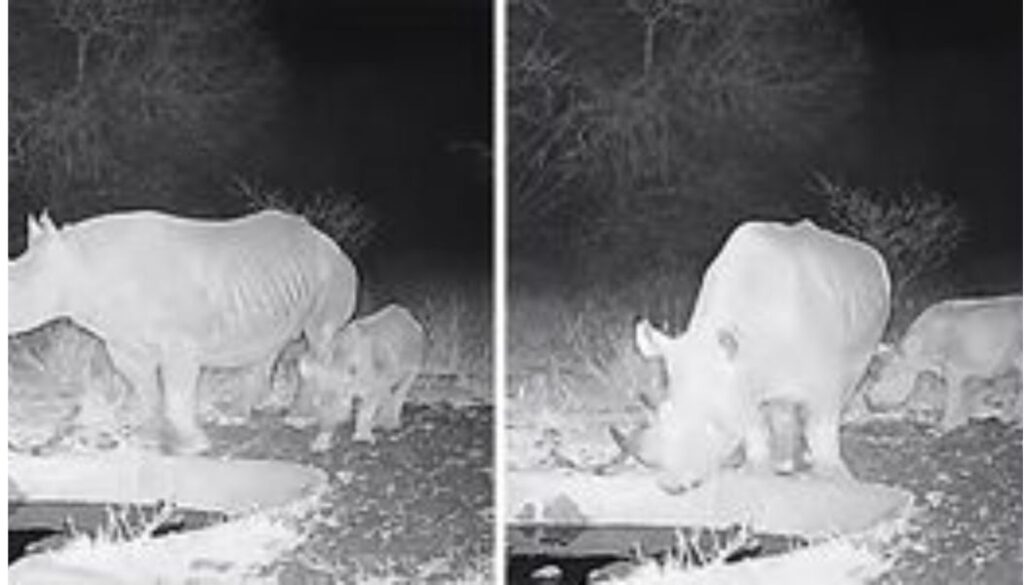Critically endangered black Rhino born at Chyulu Hills National Park

Critically endangered black Rhino born at Chyulu Hills National Park
Kenya continues to revel in its wildlife conservation endeavours after a black rhino, a critically endangered species, was born at the Chyulu Hills National Park a few days ago.
The news was confirmed by the Big Life Foundation, which relayed that this was the second such calf born in the course of less than two years in Kenya.
“We are thrilled to announce that our rangers have recorded a rhino calf born in the Chyulu Hills, the second in less than two years,” Big Life said in a statement.
The birth brings the population of Eastern black rhinos up to nine, a big feat for the endangered species in the national park, which once hosted the densest population of black rhinos in East Africa.
The new calf was discovered when one of the 63 rangers from the Big Life Foundation patrolling the area came across tiny, three-toed footprints following larger ones on a trail through thick bush, indicating a new rhino calf.
On the discovery of the footsteps, the rangers quickly deduced that one of their most popular female rhinos, Namunyak, which had been missing from trail cameras for months, might be the mother.
Ruto appoints Speaker Kingi’s brother, Michael Thoyah, to SRC
Several government ministry websites hacked in suspected cyber attack
Chinese Embassy cautions its nationals in Kenya after viral video of a Chinese assaulting a Kenyan
Rigathi Gachagua reveals when he will visit Bondo
Subsequently, the 14-year-old mother was spotted on one of the 42 camera traps with a little calf in tow, confirming their suspicions that her absence from the trails meant she was pregnant or nesting after pregnancy.
The exact date of the calf’s birth is yet to be determined, although it happened sometime within the past six months. Its sex is also yet to be determined.
“Rhino calves are extremely vulnerable when they are young, and so we are cautious about announcing births prematurely,” the statement read.
“Now that it has survived the first 6 months, its chance of survival increases every day. If all goes well, this calf could live until 2065.”
This feat could prove miraculous, as the species is facing extinction due to poaching, although the foundation expressed its commitment to continuing its conservation in the area, with an aim to make Chyulu Hills one of East Africa’s densest rhino populations once more.
Currently, only 6,800 black rhinos remain across Africa, with only 900 of those being of the Eastern black rhino subspecies native to Kenya, Tanzania, and South Sudan.
This fact makes every birth a crucial victory in the long, difficult battle against extinction.
Government reveals group behind cyberattack on several ministry websites
UK issues warning over visa applications
Why Babu Owino, Edwin Sifuna are not aligned to Broad-based government – ODM MP
Activist Shakira Wafula resigns from Maraga’s Presidential Campaign Team
Appointment of Oburu Oginga as party leader should have been postponed – ODM MP
Follow us





